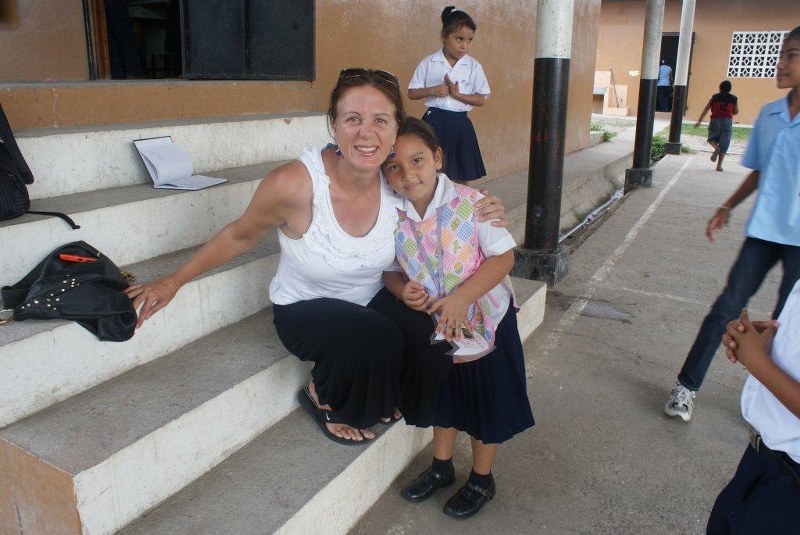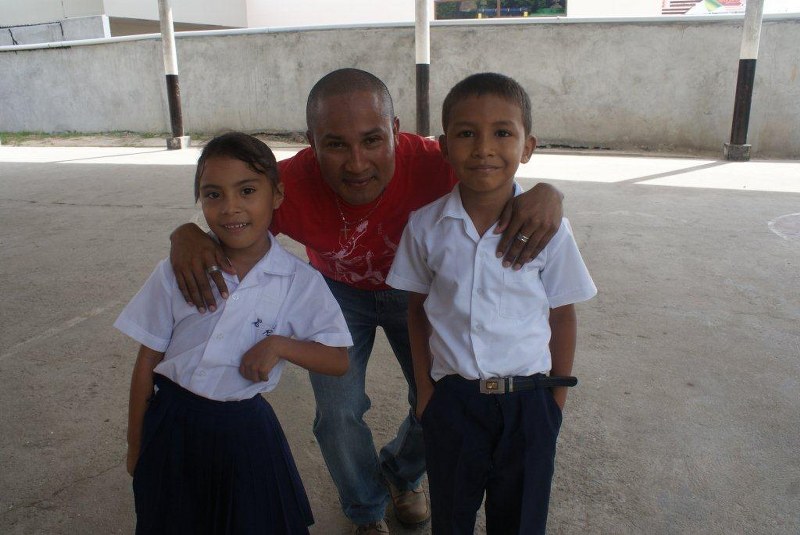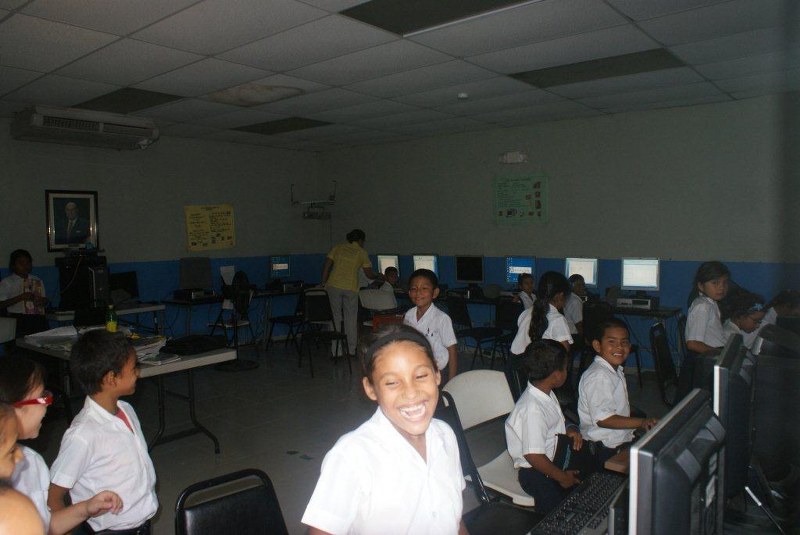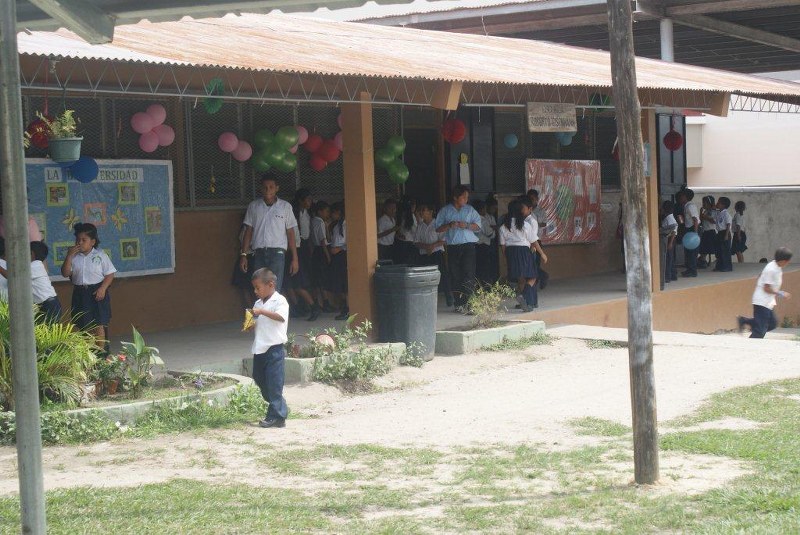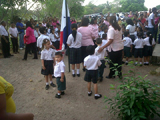
You have made the decision to move to Panama. You are packing up all your worldly possessions and the family is embarking on a new adventure. As many of us already know, the hours, days and months of research and preparation from the moment the bright idea came into our head to the moment we stepped off the plane in Panama are well worth the reward. For the young family this can be even more time consuming as you research school options and activities for your kids.
I recently did some research on the schooling in the Beach Area of Panama. I toured a Panamanian Public School, interviewed some parents and kids from a local Private Bilingual Baptist School and I have done some research and interviewed some parents and students from the two International schools in the area. My quest is to make the process a little easier for the family who is about to embark on the move to Panama. I know that for us, playacommunity.com and other blogs and personal testimonials helped make the transition easier, as I hope this will do for you.
Local Panama School - Escuela de Roberto Eisenmann
A few weeks ago, Vicente and I spent over an hour at the local K-8 public school situated across the Panamamerican highway from El Rey and Super 99. All the kids were in their uniform and the familiar sounds of school days could be heard coming from the open air class rooms. We interviewed a few kids from each grade who were more than eager to tell us about their experience at the school. Every student from K-8 receives 1 hour of computer education a day. There are over 20 computers in the class for the kids to share. They all get 4 hours of English instruction a week, plus they learn mathematics, natural sciences, art and language studies. For an English speaking student arriving to Panama, Escuela de Roberto Eisenmann may offer its challenges due to the language, but you would be sure to have a bilingual son or daughter within a few months.
The Principal of the School was extremely proud of her 220 students, and truly encourages every student to fulfill their dreams and to continue their education. In Panama education is not mandatory. Their exists no age where a child must attend school. For this reason the percentage of children that actually graduate from high school are less than 50%. Indira Ruiz, only wished their existed a law where kids had to attend school to a certain age. For now however, she continues to offer the best education possible. Indira has been in the education system for 20 years and at Escuela de Eisemann for 10 years and loves her job.
El Sembrador - Private Bilingual School
Five minutes up the Panamerican Highway on your way to San Carlos is a quaint Iglesia that serves as a school from Monday to Friday. This is a private school that teaches kids for K-4 and costs $35/month. A few of the local expat children attend El Sembrador and the reviews have been quite positive. The uniforms are very sharp, the classes are quite structured and all 3 kids that I know that attend love going to school. They have English studies daily, but the majority of the lessons are in Spanish. These three expat students are now fluently bilingual and are quick to correct me when I have mispronounced a word. It is a family oriented environment; very often inviting the parents to attend presentations and classes with the kids. A great option I think for the Kindergarten or Grade 1 student.
International Schools
As of this year there now exists two International Schools. The kids follow a North American curriculum along with learning the Spanish language and culture. Panama Coast International School is located in Gorgona and offers accredited studies for kids from pre-kindergarten to high school. Five Star Learning Academy is located in Santa Clara a mere 25 minutes further down the Panamerican highway. This learning centre offers an accredited curriculum for kids from K-5 and will be expanding as the need arises. Both schools have certified teaching professionals and assistants and follow the North American school year from September to June. The above Panamanian schools mentioned follow a school year that starts in March and finishes in December. While the environment is not your traditional large learning centre with separate class rooms and long hall ways, the structure is intimate and offers the student more one on one attention and an atmosphere to excel.
Every ex patriot family needs to allow time for adjustment. It will take time to feel comfortable and into the tropical lifestyle. For myself the novelty has not worn off, and I hope it never does. This is now my home and I still pinch myself daily at the fact that I am living in such a fabulous part of the world. I only hope is that this will be the same for the new families that arrive. Every experience will be new. The school experience will be different. Children are being educated at home, in open air classrooms, in churches and in house like structures that have been turned into classrooms. I would have only wished I could have had the same opportunity when I was a kid.
***********
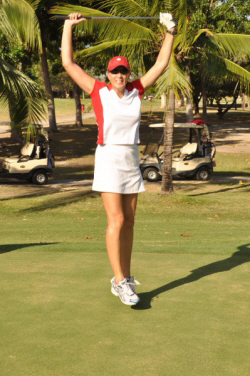
Karyn Saunders is a young expat living in Pacific Beach Communities since 2008. Her passion for Panama and for her new community is seen through her insightful, discussion-promoting articles on living in the tropics. Karyn is a Virtual Recruiter, Writer and specializes in Social Media Marketing. She is also a Motivational Speaker and Personal & Professional Life Coach.

 Karyn Saunders is a young expat living in Pacific Beach Communities since 2008. Her passion for Panama and for her new community is seen through her insightful, discussion-promoting articles on living in the tropics. Karyn is a Virtual Recruiter, Writer and specializes in Social Media Marketing. She is also a Motivational Speaker and Personal & Professional Life Coach.
Karyn Saunders is a young expat living in Pacific Beach Communities since 2008. Her passion for Panama and for her new community is seen through her insightful, discussion-promoting articles on living in the tropics. Karyn is a Virtual Recruiter, Writer and specializes in Social Media Marketing. She is also a Motivational Speaker and Personal & Professional Life Coach. 
